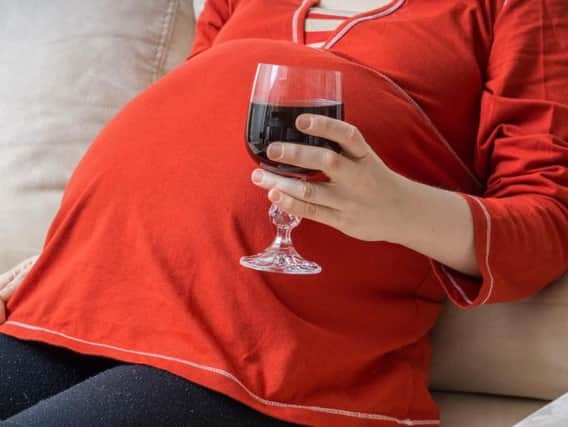UK mothers 'among worst in world' for problems caused by drinking during pregnancy


The findings should cause concern, as the researchers have warned of the huge impact alcohol can have on babies' health, and recommend abstaining from booze.
Globally, nearly 10 per cent of expectant mums drink alcohol, a figure which varies widely in different countries - with some as high as 45 per cent.
Advertisement
Hide AdAdvertisement
Hide AdScientists said it can cause foetal alcohol syndrome (FAS) in children - which can include mental, behaviour and learning problems, as well as physical disabilities.
An estimated one in 67 women who drink during pregnancy will have a baby with the syndrome, they said.
There is an urgent need for more effective prevention strategies to target alcohol use during pregnancy, the researchers concluded.
Worldwide, an estimated 119,000 children are born with the syndrome each year, according to the study from the Centre for Addiction and Mental Health.
Advertisement
Hide AdAdvertisement
Hide AdEurope had a higher prevalence of foetal alcohol syndrome - 2.6 per cent - than the global average.
The five countries with the highest rates were all in Europe - Russia, the UK, Denmark, Belarus and Ireland.
The lowest levels of drinking and the syndrome were found in the Eastern Mediterranean and South East Asia regions, as there are high rates of alcohol abstinence in these regions.
In Canada, which has clinical guidelines advising abstinence during pregnancy, an estimated ten per cent of pregnant women still drink, which is close to the estimated world average.
Advertisement
Hide AdAdvertisement
Hide AdDespite the alarming rates in some countries, not every woman who drinks while pregnant will have a child with foetal alcohol syndrome, the scientists said.
Study leader Svetlana Popova said: "The safest thing to do is to completely abstain from alcohol during the entire pregnancy.
"We estimated that one in 67 mothers who drink during pregnancy will deliver a child with FAS."
But she added that the figure is very conservative, and does not include other types of the syndrome that may occur from alcohol consumption during pregnancy.
Advertisement
Hide AdAdvertisement
Hide AdThese include partial foetal alcohol syndrome, pFAS, and Alcohol-related Neurodevelopmental Disorders, ARND.
Although it is well established that alcohol can damage any organ or system in the developing foetus - particularly the brain - it remains unknown exactly what makes it most susceptible.
This includes the amount or frequency of alcohol use, or timing of drinking during pregnancy, according to the research published in The Lancet Global Health.
Other factors, such as the genetics, stress, smoking and nutrition also contribute to the risk of developing the disorder, the study says.
Advertisement
Hide AdAdvertisement
Hide AdThe estimates from the study are intended to help countries plan public health initiatives and policies.
These can include monitoring foetal alcohol syndrome, and better education on the risks of alcohol use during pregnancy, the researchers note.
The model that the research team used could also help estimate the prevalence of other disease conditions, Dr Popova added.
Her team is currently extending their work to study the global scale of all foetal alcohol spectrum disorders, FASD.
Advertisement
Hide AdAdvertisement
Hide AdA previous study by Dr Popova and her team, published in The Lancet last year, showed that more than 400 disease conditions co-occur with FASD.
According to the NHS, “Chief Medical Officers for the UK recommend that if you're pregnant or planning to become pregnant, the safest approach is not to drink alcohol at all to keep risks to your baby to a minimum.
“Drinking in pregnancy can lead to long-term harm to the baby, with the more you drink, the greater the risk.”